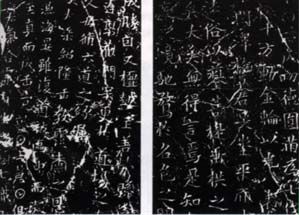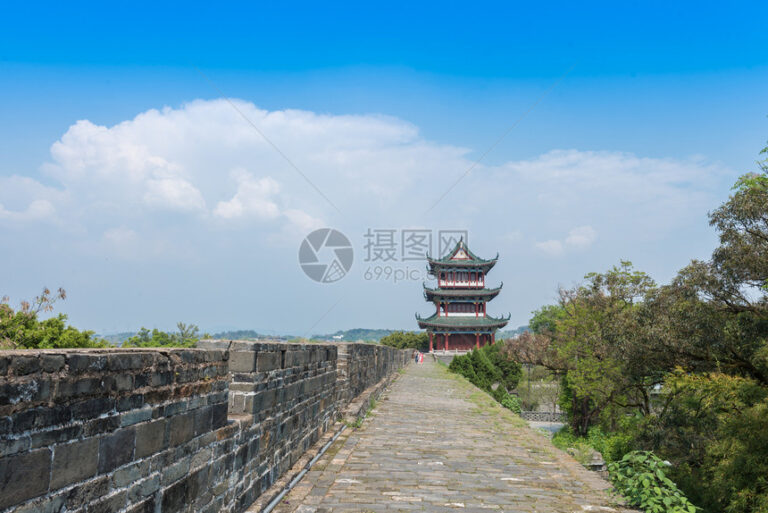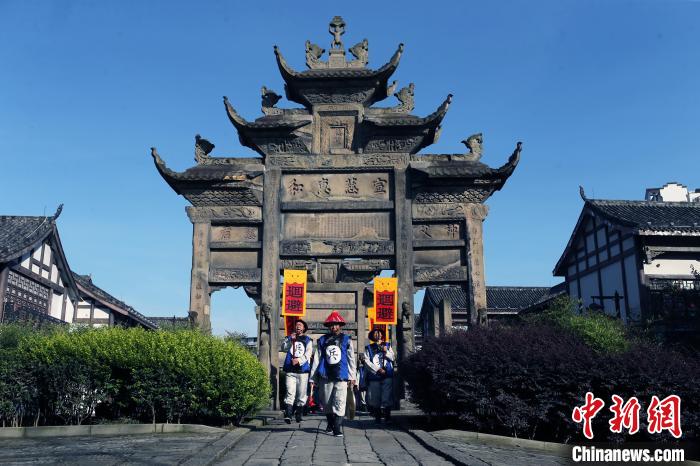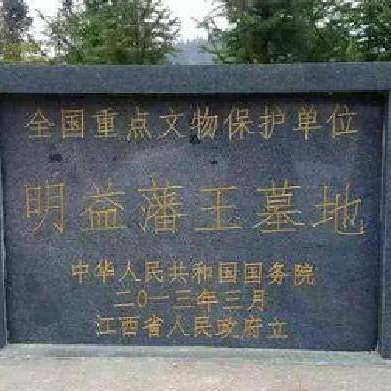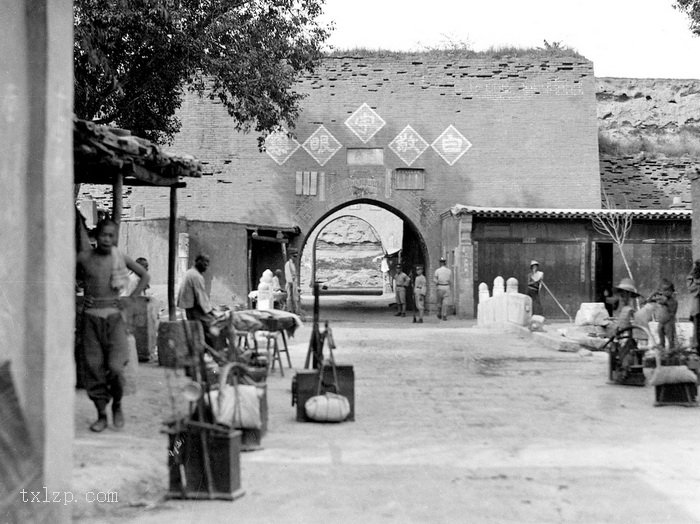A Visitor’s Guide to Yuncheng Jishan Jiwang Temple: Experience Tranquility in Shanxi
An Essential Guide to Visiting Yuncheng Jishan Jiwang Temple
In This Guide
- An Essential Guide to Visiting Yuncheng Jishan Jiwang Temple
- The Rich History of Yuncheng Jishan Jiwang Temple
- Main Highlights: What to See at Yuncheng Jishan Jiwang Temple
- Planning Your Visit: A Practical Guide
- Tickets, Hours, and Booking
- How to Get There
- Local Cuisine and Accommodation
- Frequently Asked Questions
- Final Thoughts on Your Trip
Nestled in the serene countryside of Shanxi Province, the Yuncheng Jishan Jiwang Temple, also known as the Fawang Temple, stands as a poignant testament to China’s rich agricultural heritage and architectural brilliance. This ancient temple, dedicated to the revered agricultural deity Hou Ji, serves not only as a spiritual sanctuary but also as a vibrant cultural landmark.
Dating back to the Yuan Dynasty, the temple showcases a remarkable fusion of architectural styles that span the Yuan, Ming, and Qing dynasties. Visitors are greeted by its grandeur upon entering through the impressive mountain gate, adorned with intricate carvings and vibrant paintings that narrate tales of gods and legends. The temple complex features a stunning wooden theater, known as the “Le Lou” or music pavilion, where traditional performances once captivated audiences, echoing the spirit of ancient Chinese operas.
Set against a backdrop of lush fields and rolling hills, the Jiwang Temple invites travelers to explore its sacred grounds, where the air is thick with history and reverence. As you wander through its hallowed halls, each step reveals a story of devotion and craftsmanship, from the intricately carved pillars to the colorful glazed roofs that glimmer in the sunlight. This hidden gem is a must-visit for those seeking to immerse themselves in the essence of Chinese culture, spirituality, and artistry.
Whether you are a history buff, a lover of architecture, or simply in pursuit of tranquility, the Yuncheng Jishan Jiwang Temple promises an unforgettable experience that bridges the past and present, making it a remarkable stop on your journey through Shanxi’s storied landscapes.
The Rich History of Yuncheng Jishan Jiwang Temple
Nestled in the picturesque village of Nanyang, within Yuncheng, Shanxi Province, the Yuncheng Jishan Jiwang Temple is a remarkable testament to the region’s rich cultural heritage and historical significance. Established during the Yuan Dynasty, this temple was built to honor Houji, the revered god of agriculture, considered the progenitor of farming in Chinese mythology. His legacy is celebrated for introducing agricultural practices that transformed the lives of ancient communities.
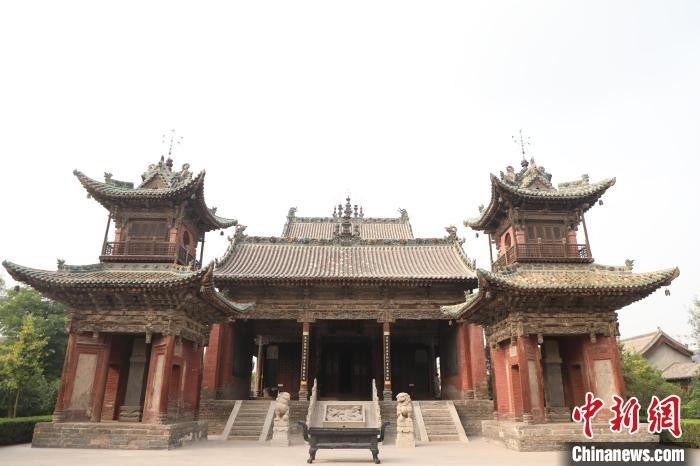
Yuncheng Jishan Jiwang Temple.
The temple underwent significant renovations during the Qing Dynasty, specifically in the 23rd year of the Daoguang Emperor’s reign, following a devastating fire that destroyed much of the original structure. This restoration was spearheaded by Li Jingchun, the governor of Jishan County, who mobilized local resources to rebuild the temple, ensuring that it would continue to serve as a place of worship and cultural significance. Today, the temple complex spans approximately 15.1 acres, showcasing an impressive blend of architectural styles from the Yuan, Ming, and Qing dynasties.
One of the temple’s most notable features is its exquisite wooden and stone carvings, which are regarded as some of the finest examples of traditional Chinese craftsmanship. The intricate designs and historical murals tell stories of ancient agricultural practices and local legends, further enriching the temple’s narrative. The temple’s main hall, dedicated to Houji, is adorned with colorful glazed tiles and ornate decorations that reflect the artistic excellence of the time.
In addition to its architectural beauty, the Jiwang Temple holds significant cultural importance as a religious site for those who revere agricultural traditions. It serves as a gathering place for festivals and rites that celebrate the agricultural calendar, fostering a sense of community and continuity among the local populace.
As one of the few remaining structures of its kind in the region, the Yuncheng Jishan Jiwang Temple is not merely a historical site; it is a living museum that encapsulates the agricultural heritage of China. Visitors to the temple can appreciate its serene atmosphere, admire the craftsmanship of its buildings, and gain insights into the agricultural practices that have shaped the region’s identity for centuries.
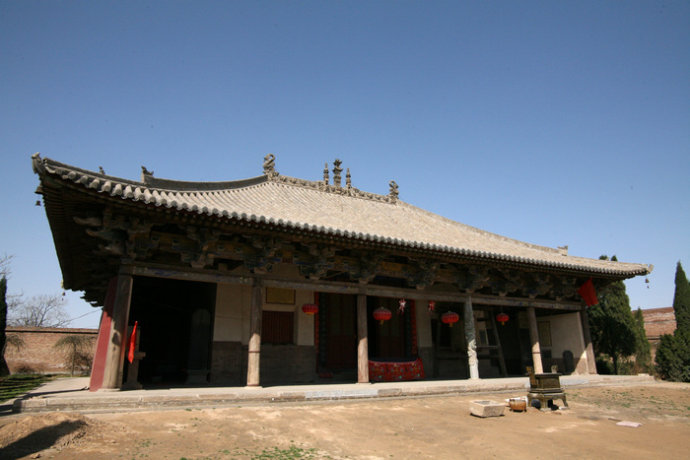
Yuncheng Jishan Jiwang Temple.
Main Highlights: What to See at Yuncheng Jishan Jiwang Temple
Nestled in the picturesque village of Nanyang, just southwest of Yuncheng City, lies the Yuncheng Jishan Jiwang Temple, a hidden gem that beautifully encapsulates the rich tapestry of Chinese history and culture. This ancient temple is dedicated to Hou Ji, the agricultural deity revered as the Father of Agriculture in Chinese mythology. Here are the key highlights that make this site a must-visit for travelers seeking to explore the depths of traditional Chinese architecture and spirituality.
Architectural Marvels
The Jiwang Temple is a splendid example of ancient Chinese architecture, showcasing elements from the Yuan, Ming, and Qing dynasties. Its main structures, including the ceremonial hall and the exquisite theater, embody intricate craftsmanship, with stunning wood and stone carvings that reflect the artistry of bygone eras. Visitors can admire the beautifully adorned eaves and the vibrant glazed tiles that top the roofs, adding a touch of elegance to the temple’s silhouette against the sky.
The Grand Theater
One of the temple’s most captivating features is its impressive theater, designed for traditional performances. This structure, with its cross-gable roof and spacious interior, was once a bustling stage for local operas, and it continues to echo the sounds of ancient performances. The theater’s design, with no visible columns obstructing the view, allows for an immersive experience, making it a unique piece of architectural ingenuity that enhances the temple’s allure.
Rich Cultural Heritage
The temple serves as a significant cultural site, where visitors can delve into the history of agriculture in China. It reflects the deep reverence that ancient Chinese society held for agricultural practices and the deities associated with them. The temple is not only a place of worship but also a custodian of agricultural traditions, offering insights into the symbiotic relationship between the land and its people.
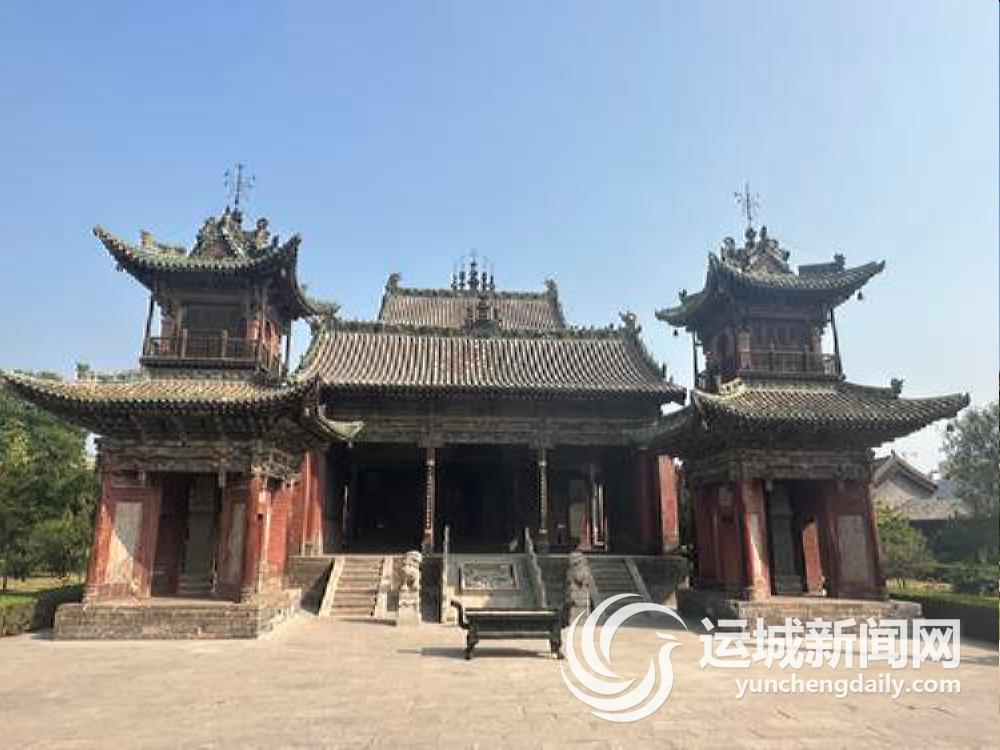
Yuncheng Jishan Jiwang Temple.
Scenic Surroundings
Surrounded by the tranquil landscapes of Nanyang village, the temple offers a serene escape from the hustle and bustle of city life. The lush greenery and gentle hills create a perfect backdrop for leisurely strolls and photography. The peaceful ambiance invites visitors to reflect and absorb the spiritual essence of the site.
Accessibility and Visitor Experience
Conveniently located just a short drive from Yuncheng City, Jiwang Temple is easily accessible for both domestic and international travelers. Admission to the temple is free, allowing everyone to experience its beauty without any financial barrier. The temple’s caretakers are often on hand to share stories and insights, enriching the visitor experience with personal anecdotes and historical context.
Culinary Delights Nearby
While visiting, don’t miss the opportunity to sample local delicacies. The nearby eateries serve traditional Shanxi dishes, including the famous Jishan meat pie, which perfectly complements your exploration of the region’s rich culinary heritage.
A visit to Yuncheng Jishan Jiwang Temple is not just a journey through history; it is an exploration of the heart and soul of Chinese agricultural culture, making it a worthwhile stop for anyone traveling through Shanxi Province.
Planning Your Visit: A Practical Guide
Nestled in the serene village of Nanyang, just southwest of Yuncheng city in Shanxi Province, the Yuncheng Jishan Jiwang Temple, also known as the Fawang Temple, is a hidden gem that combines rich history, stunning architecture, and cultural significance. If you’re planning a visit, here’s a practical guide to help you make the most of your experience.
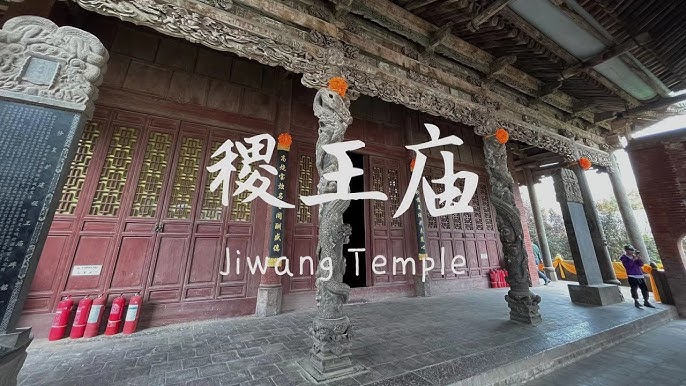
Yuncheng Jishan Jiwang Temple.
Getting There
- Location: The temple is located approximately 4 kilometers southwest of Jishan County, within Nanyang Village.
- Transportation:
- By Car: If you’re driving, the roads leading to the temple are generally well-maintained. Parking is available near the entrance.
- Public Transport: While public transportation options may be limited, taxis or ride-sharing services can take you directly to the temple from nearby towns.
Opening Hours
- The temple is open to visitors from 8:30 AM to 6:00 PM. However, it is advisable to check local resources for any updates on hours or special closures, especially during holidays.
Admission
- Entrance Fee: Visiting the Jiwang Temple is free, allowing you to explore this historical site without any cost.
What to Expect
- Architecture: The temple showcases a blend of architectural styles from the Yuan, Ming, and Qing dynasties, with intricate wooden carvings, stone sculptures, and colorful glazed tiles. Notable features include:
- The main hall dedicated to the worship of Houtu, the agricultural deity.
- An exquisite opera stage that has stood the test of time, featuring beautiful murals depicting historical and mythological scenes.
-
The temple complex consists of several buildings arranged in a traditional layout, including a main hall, stage, and various side halls.
-
Cultural Significance: The Jiwang Temple is dedicated to Hou Ji, the legendary figure credited with introducing agriculture to ancient China. Visitors can learn about the temple’s role in honoring agricultural traditions and its importance in Chinese cultural heritage.
Tips for Visitors
- Dress Comfortably: Wear comfortable shoes, as exploring the temple grounds may involve walking on uneven surfaces.
- Respect Traditions: As a place of worship, maintain a respectful demeanor. Photography may be restricted in certain areas, so be mindful of signs.
- Local Cuisine: After your visit, consider trying local Shanxi delicacies, such as Jishan-style meat pies, at nearby eateries.
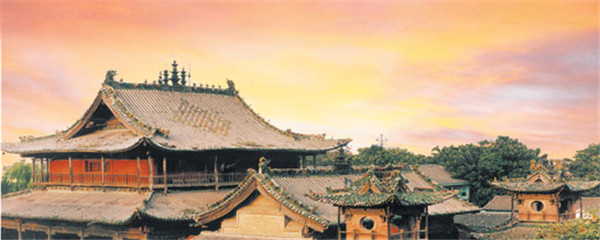
Yuncheng Jishan Jiwang Temple.
Nearby Attractions
- If time permits, explore other nearby historical sites such as the Ma Village Brick Carving Tombs and the Qinglong Temple, both of which showcase the rich cultural fabric of the region.
Weather Considerations
- Climate: Shanxi experiences four distinct seasons. The best times to visit are spring (April to June) and autumn (September to November), when temperatures are mild and the scenery is particularly beautiful. Summers can be hot, while winters can be cold, so plan your attire accordingly.
Conclusion
A visit to the Yuncheng Jishan Jiwang Temple offers a unique glimpse into China’s agricultural history and a chance to appreciate ancient architectural artistry. With free admission and easy access from Yuncheng, it’s an ideal stop for history enthusiasts and casual travelers alike. Enjoy your exploration of this tranquil and culturally rich destination!
Tickets, Hours, and Booking
When planning your visit to the Yuncheng Jishan Jiwang Temple, you’ll be pleased to know that entry is completely free! This ancient site, dedicated to the agricultural deity Hou Ji, is a treasure trove of history and architecture that doesn’t require a ticket purchase.
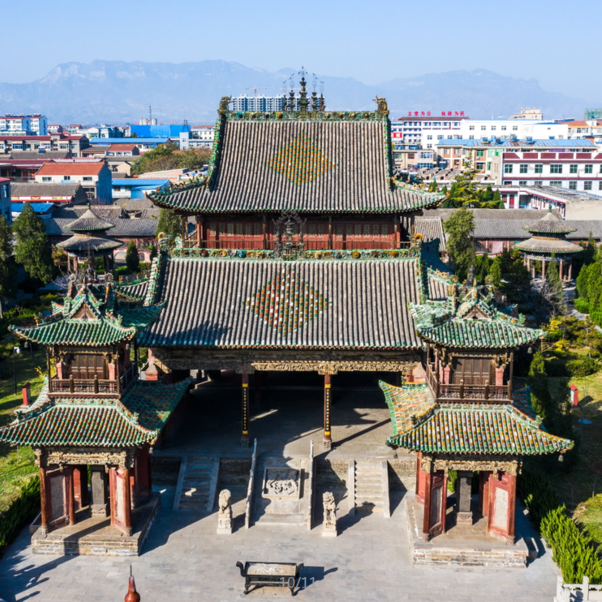
Yuncheng Jishan Jiwang Temple.
Visiting Hours
The temple is open daily from 8:30 AM to 6:00 PM. However, it’s important to note that access may be limited during certain festivals or religious observances, so checking ahead of your visit is advisable.
Accessibility
You can easily drive to the temple, as there is ample parking available on the roadside near the entrance. The temple’s low-key atmosphere and the absence of crowds allow for a peaceful exploration of its historic structures.
Tips for Visitors
- Respect Local Customs: This is a site of worship, so maintaining a respectful demeanor is essential.
- Comfortable Footwear: Be sure to wear comfortable walking shoes, as you may want to stroll through the temple grounds and surrounding areas.
- Photography: Capture the intricate architectural details and beautiful surroundings, but be mindful of the privacy of worshippers.
Whether you’re a history buff, an architecture enthusiast, or simply looking for a serene spot to reflect, the Yuncheng Jishan Jiwang Temple offers a unique glimpse into China’s rich cultural heritage without the cost of admission.
How to Get There
When planning a visit to Yuncheng Jishan Jiwang Temple, located in the picturesque Nanyang Village of Jishan County, there are several transportation options to consider for a seamless journey. Here’s a comprehensive guide to help you navigate your way to this historical gem.
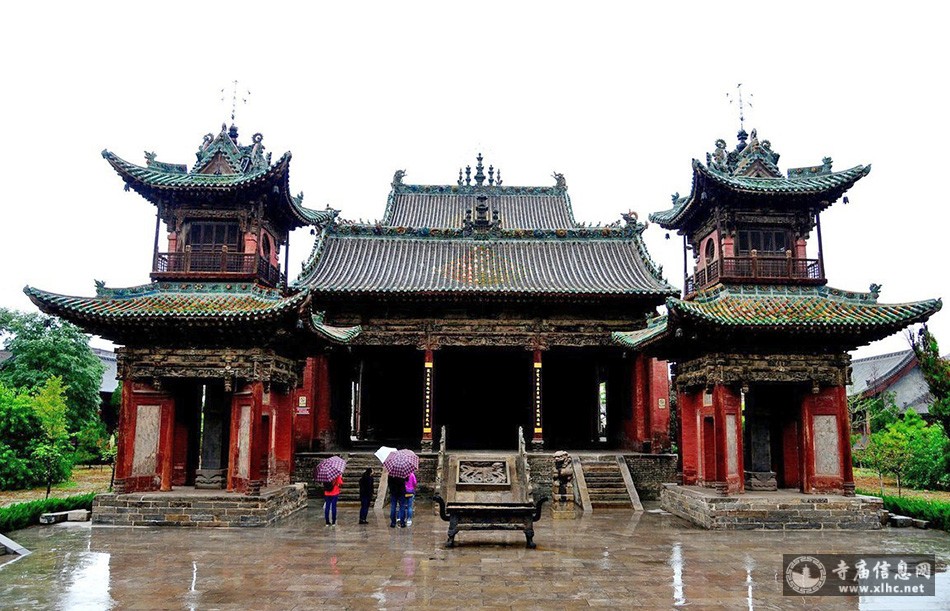
Yuncheng Jishan Jiwang Temple.
Getting There
By Train
The nearest major train station is in Yuncheng, which connects to several key cities in China, including Beijing, Xi’an, and Taiyuan. High-speed trains are available, ensuring a quick and comfortable journey. From the Yuncheng station, you can catch a taxi or use a ride-sharing app to reach Jishan County, which is approximately 30 kilometers away.
By Car
For those who prefer the freedom of self-driving, renting a car is an excellent option. The drive from Yuncheng to Jishan takes about 40 minutes and offers a scenic route through the countryside. The roads are generally in good condition, but be prepared for some rural lanes as you approach Nanyang Village. GPS navigation apps are reliable for this area, but keep an eye out for local traffic patterns.
By Bus
Public transportation is available via intercity buses that run regularly from Yuncheng to Jishan County. These buses can be boarded at the Yuncheng Long-distance Bus Station. The ride takes about an hour, and buses are usually affordable. However, be advised that schedules may vary, and it’s best to check the latest times in advance.
Local Transportation
Once you arrive in Nanyang Village, the Jiwang Temple is easily accessible. The temple is located within walking distance from the village center, and you can enjoy the surrounding scenery as you make your way there. If you prefer not to walk, local taxis are available for short rides, and they are usually quite affordable.
Parking
For those driving, parking is available near the temple. The area is relatively quiet, so finding a parking spot should not be a problem. However, it is advisable to arrive early during weekends or holidays when the temple is more likely to attract visitors.
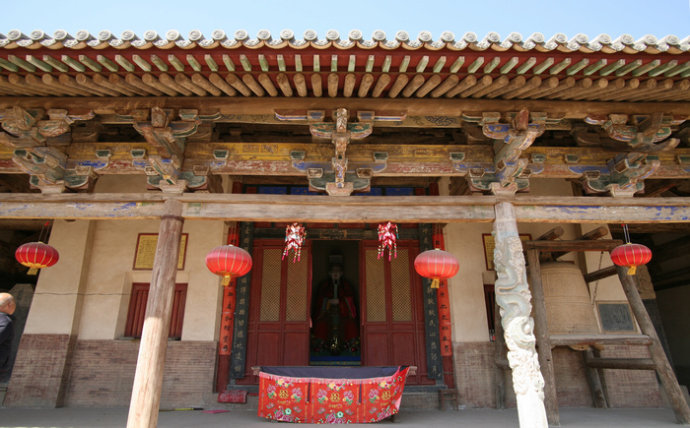
Yuncheng Jishan Jiwang Temple.
Travel Tips
- Timing Your Visit: The temple is open daily, but if you want to avoid crowds, consider visiting on weekdays or early in the morning.
- Respect Local Customs: While exploring the temple and its grounds, be respectful of local traditions and practices. This enhances your experience and shows respect to the community.
- Plan for Weather: The region can experience varied weather, so dress appropriately and prepare for sudden changes.
By following these transportation guidelines, you can ensure a smooth and enjoyable visit to the Yuncheng Jishan Jiwang Temple, an essential stop for those interested in China’s rich agricultural history and architectural beauty.
Local Cuisine and Accommodation
When visiting the enchanting Yuncheng Jishan Jiwang Temple, experiences don’t end with the exploration of its breathtaking architecture and cultural significance. The surrounding area offers delightful local cuisine and comfortable accommodations that enhance your journey.
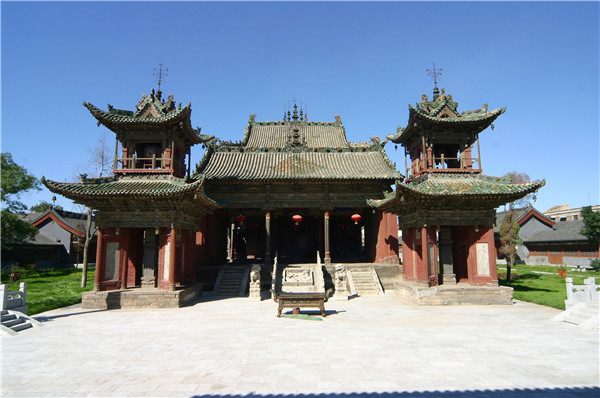
Yuncheng Jishan Jiwang Temple.
Culinary Delights
One of the must-try dishes in this region is the Jishan Shaobing—a local specialty featuring flaky, crispy flatbreads often filled with savory meats or vegetables. This dish is a staple among locals and provides a delicious way to fuel your day of exploration.
For those seeking a more substantial meal, Yangrou Hela (lamb noodle soup) is another highlight. This hearty dish combines tender lamb with hand-pulled noodles, making it both satisfying and warm, especially if you’re visiting during the cooler months.
Additionally, the area is dotted with small eateries and food stalls where you can sample traditional snacks such as Guo Bao Rou, sweet and sour pork, or Lao Gan Ma spicy sauces that add a kick to any meal. Don’t forget to wash it down with a cup of Wuling Tea, known for its unique flavor profile and health benefits.
Staying Nearby
For accommodations, options range from homely guesthouses to mid-range hotels, offering a comfortable stay after a day of sightseeing.
Jishan Hotel, located just a short drive from the temple, provides clean rooms and a welcoming atmosphere for travelers. It’s equipped with modern amenities and offers breakfast to ensure you start your day right.
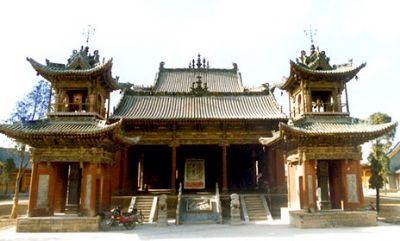
Yuncheng Jishan Jiwang Temple.
Another excellent choice is Wenhua Hotel, known for its friendly service and spacious rooms. This hotel is particularly convenient for those looking to explore nearby attractions, as it is centrally located.
For a more authentic experience, consider staying in one of the local guesthouses, where you can immerse yourself in the culture of the area, interact with residents, and enjoy homemade meals.
Whether savoring local delicacies or resting in a cozy accommodation, your visit to Yuncheng Jishan Jiwang Temple can be both enriching and comfortable, creating lasting memories of this historical gem.
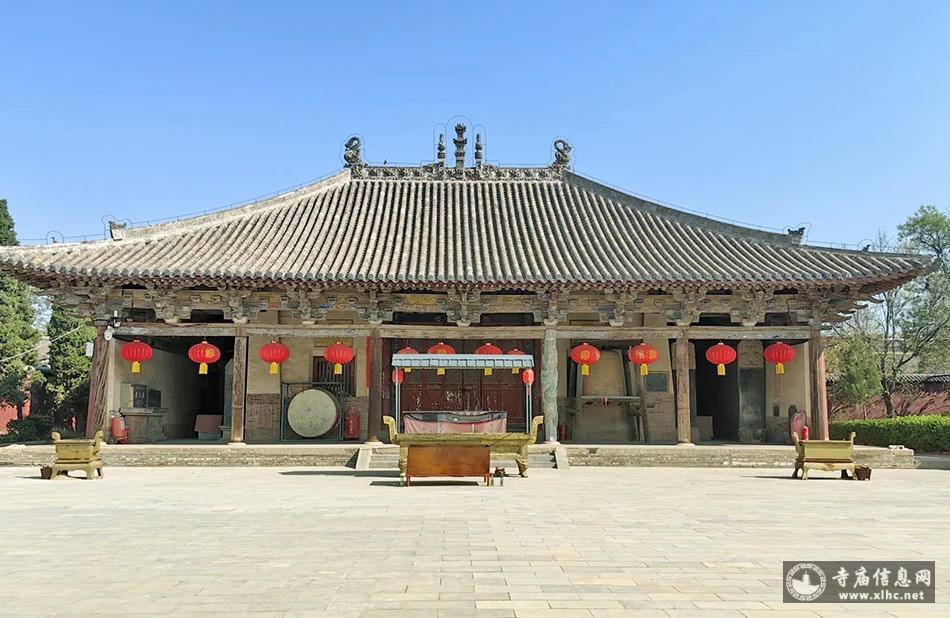
Yuncheng Jishan Jiwang Temple.
Frequently Asked Questions
Frequently Asked Questions about Yuncheng Jishan Jiwang Temple
1. What is the history of the Jiwang Temple?
Jiwang Temple, also known as the Fawang Temple, was originally built during the Yuan Dynasty and is dedicated to the agricultural deity Hou Ji, who is revered as the ancestor of agriculture in Chinese mythology. The temple has undergone several renovations, most notably in the 23rd year of the Daoguang reign in the Qing Dynasty, following a devastating fire.
2. Where is Jiwang Temple located?
The temple is situated in Nanyang Village, approximately 4 kilometers southwest of Jishan County in Yuncheng City, Shanxi Province, China.
3. Is there an entrance fee to visit the temple?
No, entry to Jiwang Temple is free of charge, making it an accessible site for visitors interested in exploring its historical and cultural significance.
4. What are the main attractions within the temple?
The temple complex features several notable structures, including the main hall, a beautifully preserved opera stage, and various decorative elements like intricate stone and wood carvings, as well as glazed tiles that reflect ancient architectural styles. The opera stage, in particular, is renowned for its unique design and historical murals.
5. What are the opening hours of the Jiwang Temple?
The temple is open daily from 8:00 AM to 6:00 PM. It is advisable to check for any local holidays or special events that may affect access.
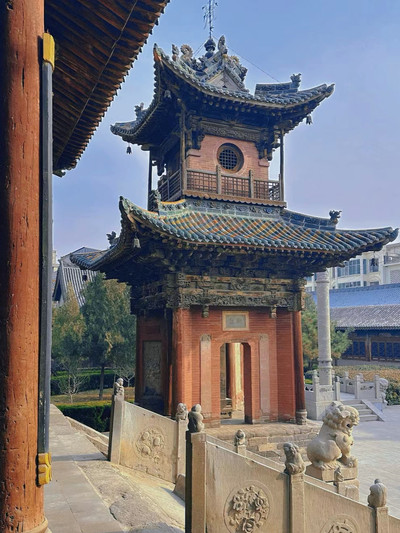
Yuncheng Jishan Jiwang Temple.
6. How can I get to Jiwang Temple?
Visitors can reach Jiwang Temple by car or public transport. The nearest major city is Yuncheng, which has train and bus connections to various destinations. Driving is recommended for convenience, as public transport can be infrequent.
7. Are there any nearby attractions worth visiting?
Yes, nearby attractions include the Ma Village Brick Carving Tombs, Qinglong Temple, and various other historical sites in Jishan County. These can often be included in a day trip itinerary.
8. What should I wear when visiting the temple?
Comfortable footwear is recommended, as visitors may need to walk on uneven surfaces and explore different areas of the temple complex. Additionally, it’s respectful to dress modestly when visiting sacred sites.
Final Thoughts on Your Trip
Visiting the Yuncheng Jishan Jiwang Temple is not just an exploration of an ancient structure; it’s a journey into the heart of China’s agricultural heritage and spiritual history. This remarkable temple, dedicated to Hou Ji, the agricultural deity, stands as a testament to the ingenuity of traditional architecture, showcasing exquisite wood carvings, stone sculptures, and vibrant glazed tiles that have withstood the test of time.
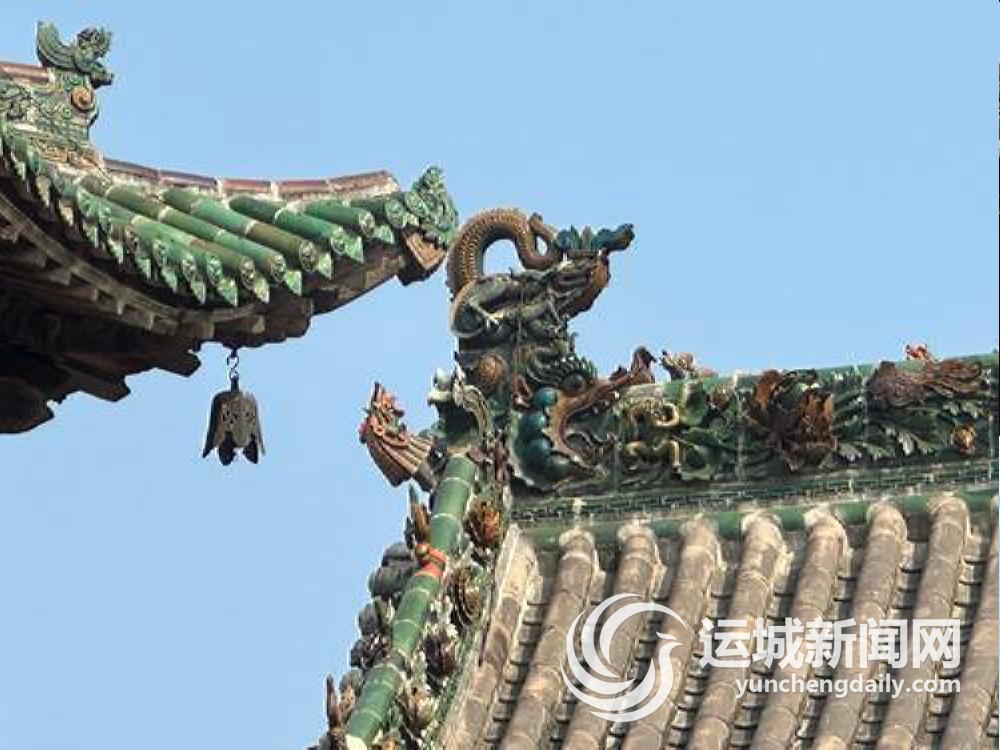
Yuncheng Jishan Jiwang Temple.
As you wander through its halls and admire the intricacies of its design, you can feel the echoes of centuries past—of rituals, traditions, and the reverence of local communities for the bounty of the land. The temple serves as a serene escape, allowing visitors to reflect on the deep connections between culture, nature, and spirituality.
Whether you are an architecture enthusiast, a history buff, or simply seeking a peaceful retreat, the Jiwang Temple offers a unique experience that enriches the soul and broadens the mind. Don’t miss the opportunity to engage with the stories etched into its walls and the vibrant atmosphere that surrounds this hidden gem in Shanxi Province. Embrace the charm of Yuncheng and let the tranquility of Jishan Jiwang Temple inspire your journey through China’s rich tapestry of heritage.
